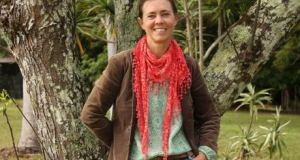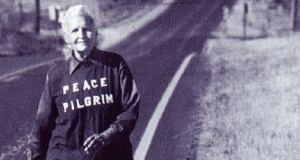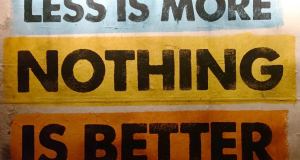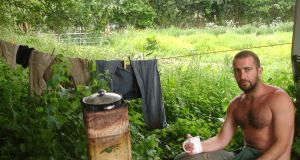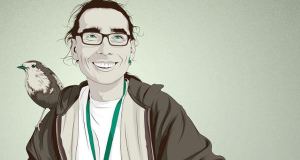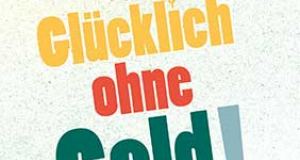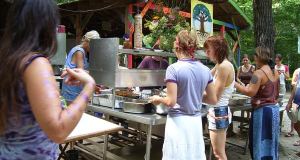
Is there a place in the world where you can live without money? Yes, in fact there are many. One of these places is Twin Oaks, an eco-village and intentional community in North America. Most members of this community do not touch or deal with money at all. Twin Oaks has been around since the late 1960's. We asked one long time member and personal friend, Paxus, to talk about it.
Could you please explain us What is Twin Oaks?
Twin Oaks is an income-sharing egalitarian community in rural Virginia. We have 7 businesses. We divide our work equally and share our income from the businesses we collectively own. Income sharing means that we pool together all the money we make and meet the needs of the group from this income. All the work of the members is evaluated the same, an hour is an hour.
Most members on most days do not touch or deal with money at all. Your commitment to the community is 42 hours per week - if you do that the community covers all your living costs such as food, housing, medical, education, entertainment, transportation, etc.
We do get a small $100 per month allowance with which we buy the things that the community does not purchase for us (perhaps cigarettes or chocolate or alcohol, though the community does buy some of the latter two).
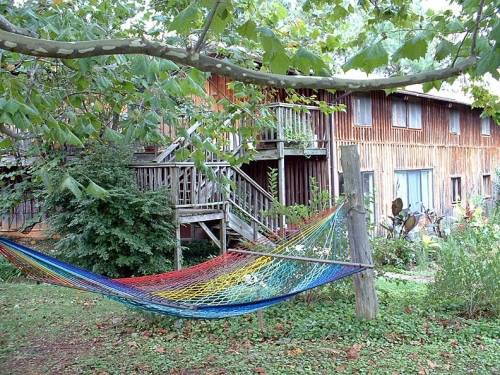
Making Hammocks is one of the community business that TwinOaks makes money with
Sounds great, but how is it like to actually live at Twin Oaks?
It is like living in a little self-sustaining village, where everyone knows each other. We socialize together, fall in love with each other (there is no prohibition on falling in love with folks outside the community, but most romances are internal), work together and struggle together.
Most members on most days do not leave the community and for most this is not a hardship. There is no live television and no advertising except what one sees on the internet and in magazines.
Neither do we have property crime, real poverty nor homelessness (unlike the rest of the US where these are significant problems). It is a slower pace of life than many places. We eat organic food that we grow ourselves, we raise our own kids, take care of our own elders, build our own buildings, fix our own cars and run our own businesses.
Most members actually live at Twin Oaks without money and we work together towards this goal
So all this does not fall from the sky, you actually work a lot for this don't you?
Yes. Everyone is committed to 42 hours work per week. We designed a labor system that both assigns work and tracks labor at Twin Oaks. We have in fact thousands of tasks that get assigned a week. This assigning process is a bit complex but also very robust.
Some of the tasks include that the cows get milked, the 88 tofu shifts get covered, every dinner and lunch gets cooked and cleaned up after, the kids get taken care for, the orders get packed and shipped, the conferences get organized, the IT system gets maintained and hundreds of massages, hangouts and discussion groups meet.
The labor tracking part makes sure that we do not spend beyond our budgets for the 100 various work areas in the community. We keep track of the work we do, it gets compared to the 42 hours per week of quota and if we don't make quota on average for a while, we run into trouble with the community.
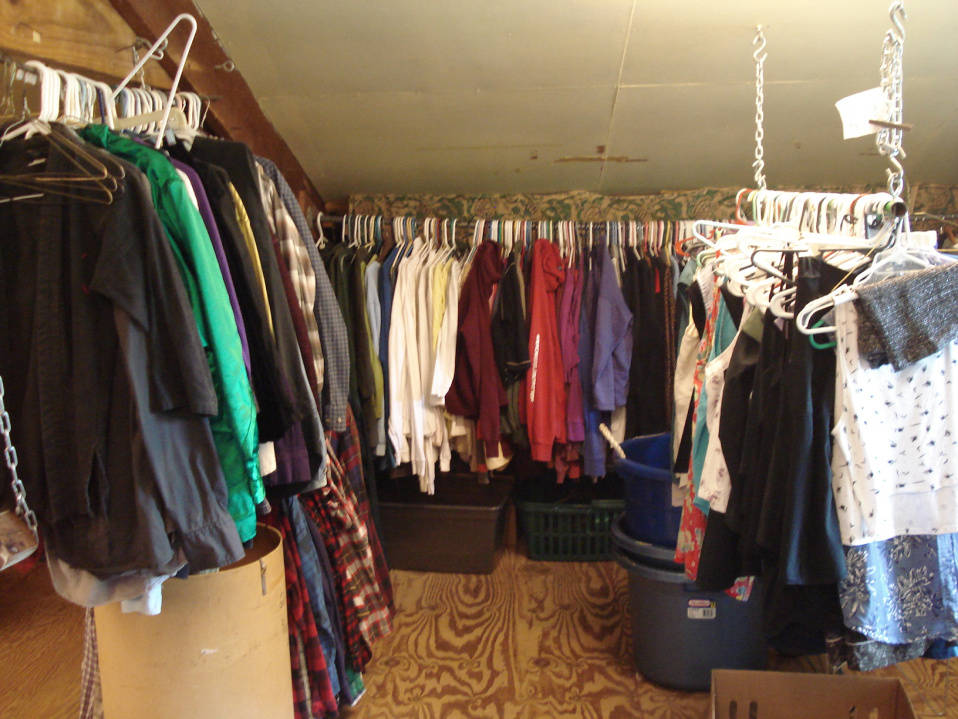
Community clothes, everyone is equally rich at Twin Oaks
Can someone also get labor credits for other type of work that is not community related?
Yes, but you need permission for that from the community. In the past I have received labor credits for my work on stopping nucleair power stations, even ones in far away countries.
I even have gotten labor credits if I got arrested at a political action and end up in jail. I also get labor credits for going to colleges and universities and talking about my lifestyle, including activism and polyamory.
Oh yes, what about this free love you so often talk about? Is that a thing?
Free Love is a thing. The community is an embrace diversity place, so we don't tell members what to do. Polyamory is part of the culture, which is a relative of free love, but not really the same thing. Certainly there is not external state or bureaucracy telling people what type of relationships to have. But Twin Oaks is not wedded to or dedicated to "free love" principals.
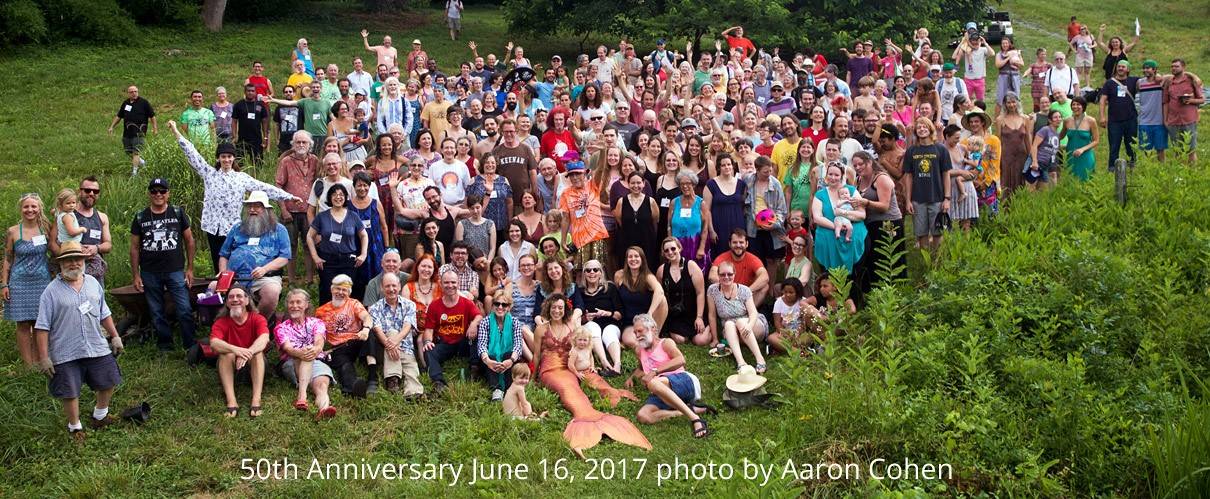
Is the concept and implementation of Twin Oaks actually scalable?
Yes this is scalable, no question about that. We are 92 adults and 15 kids, the bigger it gets the easier it gets. Perhaps there are decision making bottlenecks at 1000 members, but certainly there have been all manner of large communities which have worked it out.
We actually have several mandates, including being a model to inspire others. But this mission is often lost as other members want privacy or fear outsiders. We will continue as we have been though, providing home and services for our members.
Some members of the community also work on helping new communities get started, this is something I do often. But this is not something the entire community has agreed on and is not something which I could do full time at this point, for example. I am becoming a dual member with another local community so i can do this more of my time.
Uhm, dual member? What is that?
This is like a dual citizenship. I also intend to become a member of another lovely - smaller - community that is called Cambia. This one is quite near to Twin Oaks and it needs help getting off the ground.
I love what they are doing and want to help out. And it gives me much more freedom to do other things that I want to do. It is a beautiful place.
Anything else that we need to know about?
There is a network of egalitarian communities, which provide similar services and structure to what Twin Oaks does. The network is called the Federation of Egalitarian Communities or the FEC for short. There is an overview of all communities that work together in this network.

